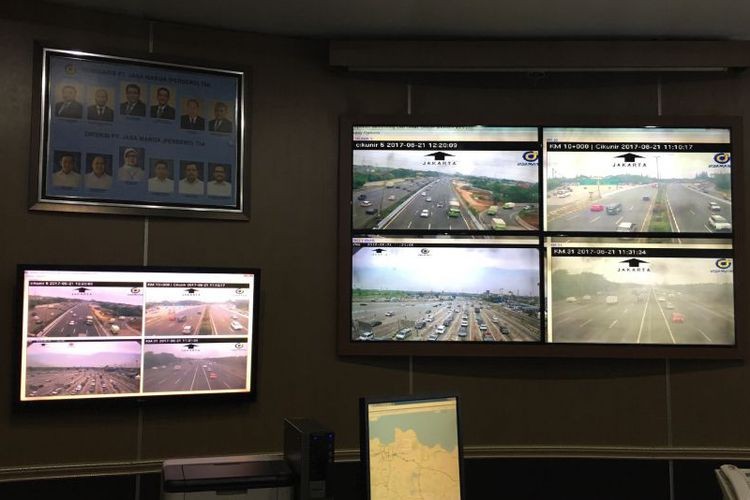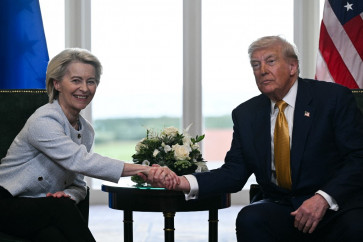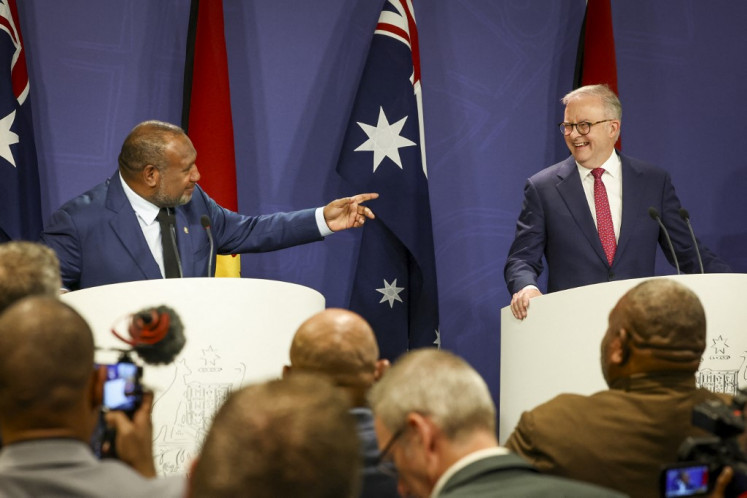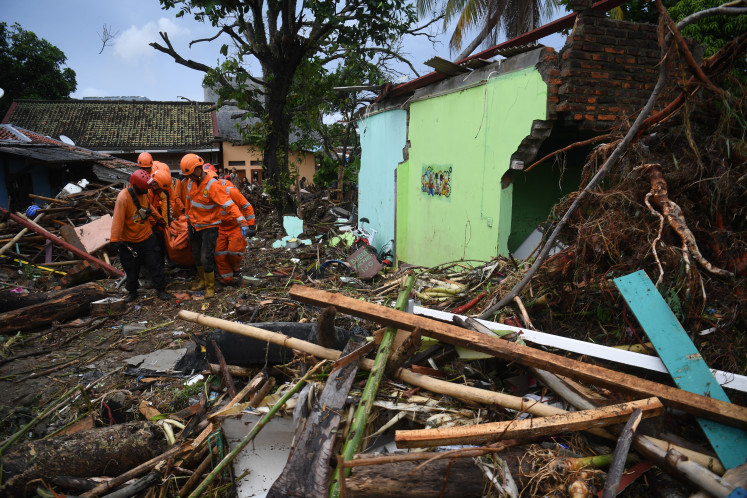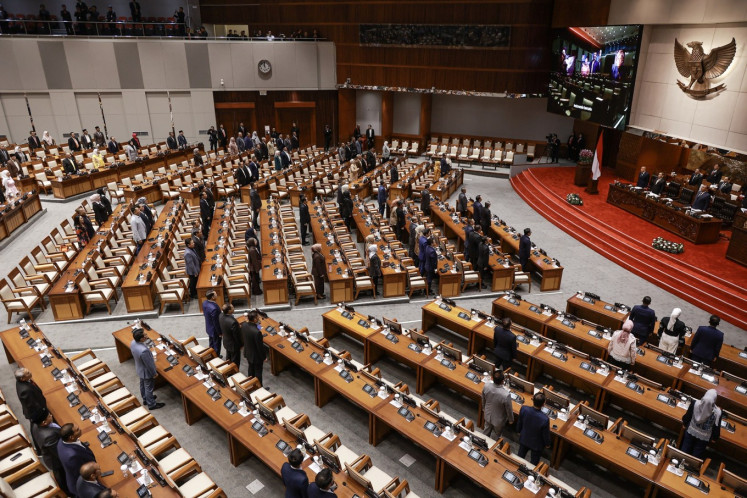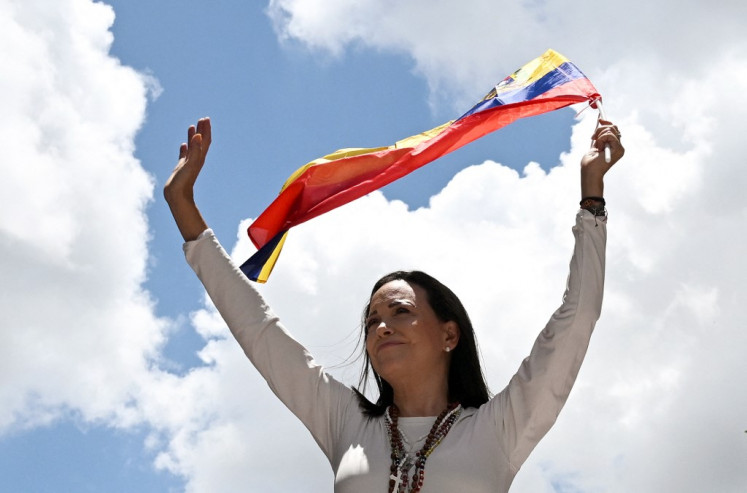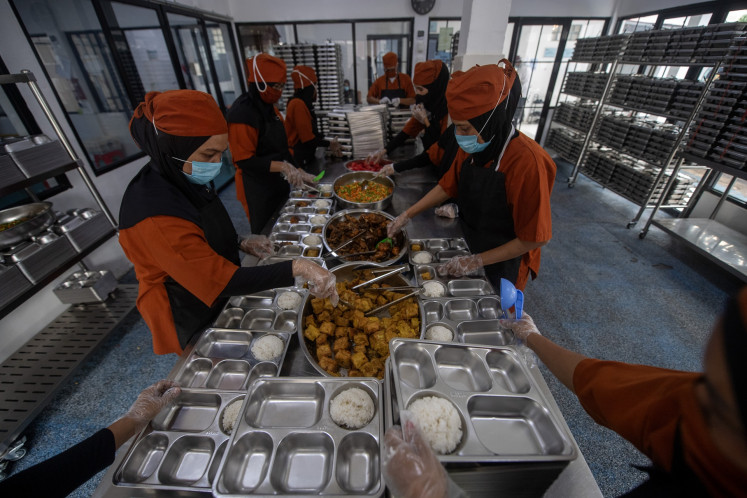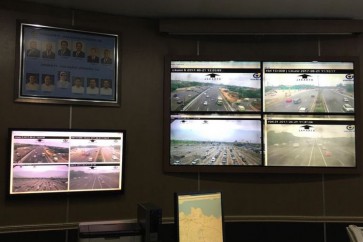Popular Reads
Top Results
Can't find what you're looking for?
View all search resultsPopular Reads
Top Results
Can't find what you're looking for?
View all search resultsThe risk of push for SOE's asset backed securitization
As of December, two SOEs had issued asset backed securities (ABS or EBA, Efek Beragun Aset): A Rp 2 trillion collective investment contract of asset-backed securities by PT Jasa Marga toll road operator (JSMR) in August and a Rp 4 trillion ABS by PT Indonesia Power, a subsidiary of state-owned electricity company PLN.
Change text size
Gift Premium Articles
to Anyone
T
he government is wellaware that it needs to tap into the private sector’s money to finance its ambitious infrastructure goals. According to Minister of National Development Planning Bambang Brodjonegoro, only a third of the total required infrastructure fund of Rp 4,700 trillion (US$348 billion) for the 2015-2019 period will be sourced from the government’s budget. A quarter will come from state-owned enterprises (SOEs) and the rest, about 40 percent, will come from the private sector.
The government has employed various methods to secure the private sector’s capital. Aside from more conventional means, such as through equity or loans, innovative methods like asset securitization, limited concession schemes and infrastructure mutual funds are also being explored.
As of December, two SOEs had issued asset backed securities (ABS or EBA, Efek Beragun Aset): A Rp 2 trillion collective investment contract of asset-backed securities by PT Jasa Marga toll road operator (JSMR) in August and a Rp 4 trillion ABS by PT Indonesia Power, a subsidiary of state-owned electricity company PLN.
The issuance was backed by JSMR’s Jagorawi toll revenue and the revenue from PT Indonesia Power’s Suralaya power plants. The listing of the first ABS by JSMR was widely celebrated – President Joko “Jokowi” Widodo attended the event, calling for more SOEs and companies to securitize their assets. The market was enthusiastic: both issuances were oversubscribed by 5.1 and 2.7 times.
Some say the ABS is nothing less than a government effort to sell government assets. Yet in the securitization structures of both issuances, there is no transfer of any assets at all. JSMR still owns the Jagorawi toll road, and PT Indonesia Power still has full control of its power plant.
In the Jasa Marga ABS, for example, the company “sells” its right to future revenue from the Jagorawi toll road to investors – and as in a regular selling, JSMR will receive a payment. Subsequently, JSMR will make a regular payment every three months to the investors up to end of the ABS contract’s tenure (five years). The payment that JSMR receives upfront can then be reinvested to other infrastructure projects.
Hence, the structure is very similar to a bond issuance, in which a party issues a bond, gets the money, then pays regular installments (called coupon and principal payments).

